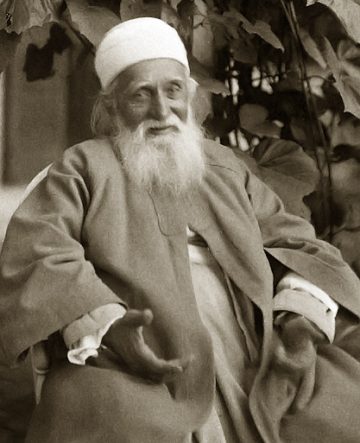The views expressed in our content reflect individual perspectives and do not represent the authoritative views of the Baha'i Faith.
Baha’u’llah’s solution of the social question provides for new laws, but the different social classes are preserved. An artisan remains an artisan; a merchant, a merchant; a banker, a banker; a ruler, a ruler; the different degrees must persist, so that each can render service to the community. Nevertheless, everyone has the right to a happy, comfortable life. Work is to be provided for all and there will be no needy ones to be seen in the streets. The vocational labor adjustment provided by Baha’u’llah precludes there being people too poor to have the necessaries of life on the one hand, nor the idle rich on the other. In which sacred book do you find this provided for? Show me! – Abdu’l-Baha, Divine Philosophy, pp. 83-84.
Two major Baha’i principles center around the critical questions of the economic well-being of humanity—the elimination of the extremes of wealth and poverty; and a spiritual solution to the world’s economic problems. Let’s take a look at those principles and how they might be implemented.

“No idle rich,” Abdu’l-Baha proclaimed, “and no needy ones to be seen on the streets.” The Baha’i teachings call for a complete re-thinking of humanity’s economic health and well-being from that unique perspective. They envision an economically just world where “everyone has the right to a happy, comfortable life.” Most of all, they foresee a time when humanity’s collective spiritual life can generate enough love and care for others that economic justice ultimately comes about, not through coercion or force, but through a ready willingness to share with others.
As Abdu’l-Baha pointedly mentioned in the excerpt from his 1913 Paris speech above, previous religious teachings have never weighed in on this important question.
In this quote, the Universal House of Justice explains the Baha’i view:
The inordinate disparity between rich and poor, a source of acute suffering, keeps the world in a state of instability, virtually on the brink of war. Few societies have dealt effectively with this situation. The solution calls for the combined application of spiritual, moral and practical approaches. A fresh look at the problem is required, entailing consultation with experts from a wide spectrum of disciplines, devoid of economic and ideological polemics, and involving the people directly affected in the decisions that must urgently be made. It is an issue that is bound up not only with the necessity for eliminating extremes of wealth and poverty but also with those spiritual verities the understanding of which can produce a new universal attitude. Fostering such an attitude is itself a major part of the solution. – The Promise of World Peace, pp. 10-11.
Abdu’l-Baha didn’t just urge others to help the poor, he constantly expended his resources on the needs of poor people. Wherever he went, poor people flocked to him for help. He personally tended to the sick, gave his own clothes away, raised food for the starving and had a special love for those who were homeless and destitute. Baha’is try to follow his example:
The fundamentals of the whole economic condition are divine in nature and are associated with the world of the heart and spirit…. The Baha’is will bring about this improvement and betterment but not through sedition and appeal to physical force — not through warfare, but welfare. Hearts must be so cemented together, love must become so dominant that the rich shall most willingly extend assistance to the poor and take steps to establish these economic adjustments permanently. If it is accomplished in this way, it will be most praiseworthy because then it will be for the sake of God and in the pathway of His service. For example, it will be as if the rich inhabitants of a city should say, “It is neither just nor lawful that we should possess great wealth while there is abject poverty in this community,” and then willingly give their wealth to the poor, retaining only as much as will enable them to live comfortably. – Abdu’l-Baha, The Promulgation of Universal Peace, p. 238.
Baha’is do not have a specific, step-by-step blueprint for solving all of the world’s financial and economic problems, but instead offer a set of general spiritual guidelines. Those guidelines outlaw the use of force, engender a spirit of commonality and communitarianism, recommend the recognition that the well-being of humanity as a whole depends on the happiness and welfare of each person, and encourage everyone to seek justice and nobility by helping others:
In the Bolshevistic principles equality is effected through force. The masses who are opposed to the people of rank and to the wealthy class desire to partake of their advantages.
But in the divine teachings equality is brought about through a ready willingness to share. It is commanded as regards wealth that the rich among the people, and the aristocrats should, by their own free will and for the sake of their own happiness, concern themselves with and care for the poor. This equality is the result of the lofty characteristics and noble attributes of mankind. – Abdu’l-Baha, Foundations of World Unity, pp. 43-44.
















Comments
Sign in or create an account
Continue with Googleor